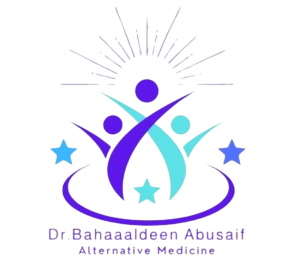If you or a loved one are suffering from alcoholism, being able to identify an individual’s current stage of alcoholism will aid in finding proper alcohol treatment. Our state-specific resource guides offer a comprehensive overview of drug and alcohol addiction treatment options available in your area. During this stage, your condition may become evident to friends and family, although some people can become highly adept at hiding problem drinking. One of the main issues with this disease is how easy it becomes to lie to yourself as well.
How Long Does Addiction Recovery Take?
The early alcoholic stage is where the signs of addiction become more obvious. Individuals often start to obsess over drinking, plan their day around alcohol, and may begin to drink secretly. They might feel guilty about their drinking habits and try to hide them from friends or family. Episodes of blacking out—where the person can’t remember events that occurred while intoxicated—also become more common.
The cycle describes how someone moves from trying a substance to becoming reliant on it. The functional type maintains a job, relationships, and outward success but drinks heavily in private. They often deny that they have a problem, which can make intervention more difficult. The young adult type typically begins drinking in college or early adulthood.

Prescription Drug Detox
With the right support, commitment, and treatment, individuals can regain control of their lives and find a path towards lasting sobriety. End-stage alcoholism, also known as late-stage alcoholism, is a critical phase of alcohol use disorder characterized by severe health complications and a dire prognosis. Overall, chronic-stage AUD not only deteriorates physical health but also erodes the fabric of social interactions, often leading to isolation and conflict within personal relationships. The complexity of its impact necessitates a multifaceted approach to treatment and recovery, addressing the disorder’s physiological and psychological dimensions. Even if your loved one seeks help, you may still need help and support to overcome the effects.
- At this point, alcohol has become a chronic addiction that has severe consequences and health risks.
- There are a few tell-tale signs of early-stage alcoholism that can help you recognise if your drinking is becoming an issue.
- Integrated treatment addressing both mental health and alcohol addiction is essential for effective recovery.
- More and more alcohol is needed to achieve the same results, setting the stage for heavier drinking in the future.
- Understanding the effects of alcoholism underscores the importance of prevention, early intervention, and access to support and treatment resources.
Health Conditions
- Verify your insurance today – treatment could be more affordable than you think.
- Recovering from alcoholism is a lifelong journey, and life after alcoholism can be incredibly rewarding.
- Support groups and family involvement offer continual encouragement and a supportive environment, helping to prevent alcohol misuse.
- If you’re in this phase, you’ll often downplay the amount you drink and find ways of explaining away the behavior.
They guide individuals through the entire recovery process, from initial detox to long-term sobriety, ensuring a comprehensive approach to treatment. His expertise covers a broad of topics relating to addiction, rehab and recovery. Boris is an addiction therapist and assists in the alcohol detox and rehab process. Boris has been featured on a variety of websites, including the BBC, Verywell Mind and Healthline. Treatment is available for middle-stage alcoholism, and it’s important to seek help before things get worse. Even in the early stage, alcohol can start to affect your relationships.
It’s important to remember that everyone’s journey to recovery is unique. Seeking professional help from addiction specialists can provide individualized guidance based stages of alcoholism on specific needs and circumstances. It is important to note that not everyone may exhibit all of these signs, and the severity of each symptom can vary from person to person. If you or someone you know is experiencing these signs, it may be an indicator of early stage alcoholism and should not be ignored.
You might notice it if they use it as their go-to way to unwind after a challenging day or long week. If they regularly rely on alcohol as a coping mechanism, can’t bear to face a social gathering without a drink, or need alcohol to relax, this could be a sign they’re in the pre-alcoholic stage. Seeking treatment during the pre-alcoholic stage is possible but is highly unlikely. The more a person drinks, the more their body becomes dependent on ethanol to release these neurotransmitters instead of releasing them naturally.
Alcohol Detox Symptoms
Treatment may include medical detoxification and inpatient rehabilitation, where the individual can receive 24/7 support and care. While many people still refer to the stages of alcoholism and find them useful, they are considered to be an outdated way of describing alcohol use disorder. The DSM-5 criteria allow for a broader range of symptoms and a more nuanced understanding of individuals’ experiences. If Sobriety you or a loved one are struggling with alcohol use disorder, there are a variety of alcohol addiction treatments that have helped people find their road to recovery.

Drug rehab resources
You may have become completely obsessed with drinking and you’re constantly drinking, thinking about when you will have your next drink, or recovering from drinking. Through increased awareness and proper treatment, it is possible to manage and overcome this challenging condition, leading to healthier and more fulfilling lives. During the first stage of alcoholism, the person is experimenting with alcohol.

Start your recovery journey with peace of mind, knowing your care is covered. This level of alcohol use disorder is extremely disruptive to families, relationships, and work environments. People with violent tendencies may become dangerous, and others may lose their jobs. It can be a significant strain on the patient and their loved ones when AUD develops at this level.


